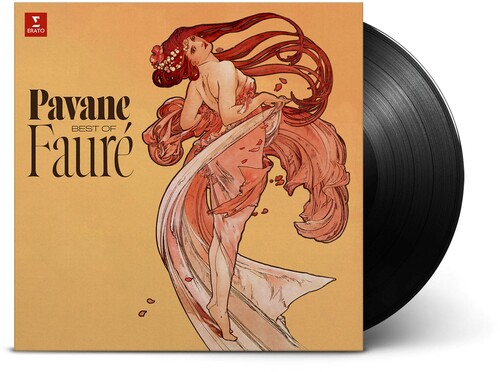Show results for
Deals
- 4K Ultra HD Sale
- 50s Films Sale
- Action Sale
- Alternative Rock Sale
- Anime sale
- Award Winners Sale
- Bear Family Sale
- Blu ray Sale
- Blues on Sale
- British Sale
- Christmas in July
- Classical Music Sale
- Comedy Music Sale
- Comedy Sale
- Country Sale
- Criterion Sale
- Electronic Music sale
- Folk Music Sale
- Horror Sci fi Sale
- Kids and Family Sale
- Metal Sale
- Music Video Sale
- Musicals on Sale
- Mystery Sale
- Naxos Label Sale
- Page to Screen Sale
- Paramount Sale
- Rap and Hip Hop Sale
- Reggae Sale
- Rock
- Rock and Pop Sale
- Rock Legends
- Soul Music Sale
- TV Sale
- Vinyl on Sale
- War Films and Westerns on Sale

Pavane - Best of Faure (Various Artists)
- Format: LP
- Release Date: 12/27/2024

Pavane - Best of Faure (Various Artists)
- Format: LP
- Release Date: 12/27/2024
- Label: Erato
- UPC: 5021732275912
- Item #: 2676616X
- Genre: Classical, Classical Artists
- Release Date: 12/27/2024

Product Notes
Gabriel Fauré (1845-1924) was a seminal composer, organist, and teacher, pivotal in bridging the Romantic and modern eras in music. Born in Pamiers, France, he studied under Camille Saint-Saëns at the École Niedermeyer. Fauré's compositions are noted for their refined, lyrical style, including notable works such as Pavane, Requiem, Sicilienne, Berceuse and Après un rêve. He held significant positions, including director of the Paris Conservatoire, influencing the next generation of composers - he was Maurice Ravel's teacher, among others. Despite progressive deafness, he continued to compose prolifically. Fauré's music is celebrated for it's elegance, innovation, and emotional depth, leaving a lasting impact on French musical history.

